Gardening in Auburn: Your Comprehensive Guide to a Flourishing Garden
Introduction to Gardening in Auburn
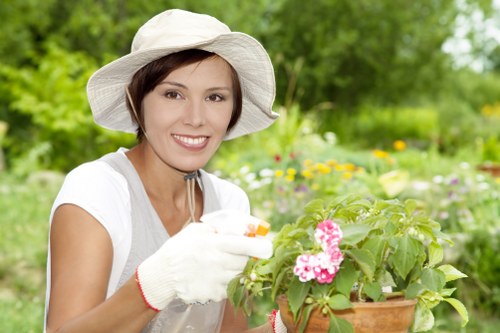
Gardening in Auburn offers a unique blend of challenges and rewards, thanks to the region's distinct climate and soil conditions. Whether you are a seasoned gardener or just starting out, Auburn provides a fertile ground for a variety of plants and flowers. Understanding the local environment is key to creating a vibrant and sustainable garden.
The Auburn area experiences a humid subtropical climate, characterized by hot summers and mild winters. This climate allows for a wide range of plant species to thrive, from colorful annuals to sturdy perennials. Additionally, Auburn's soil tends to be rich and loamy, perfect for supporting robust plant growth.
Successful gardening in Auburn involves selecting the right plants, proper soil preparation, and regular maintenance. By following these guidelines, you can ensure that your garden remains healthy and beautiful throughout the year.
Choosing the Right Plants for Auburn
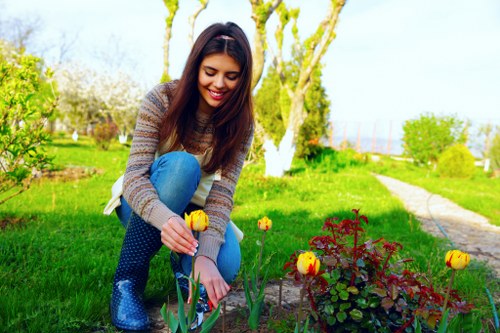
Selecting plants that are well-suited to Auburn's climate is crucial for a thriving garden. Native plants are often the best choice, as they are adapted to the local conditions and require less maintenance.
Perennials like hostas, daylilies, and coneflowers are excellent choices for Auburn gardens. These plants come back year after year, providing consistent beauty with minimal effort.
For those who prefer seasonal color, annuals such as marigolds, zinnias, and petunias can add vibrant hues to your garden. These plants will need to be replanted each year but can offer a dynamic and ever-changing landscape.
Soil Preparation and Maintenance
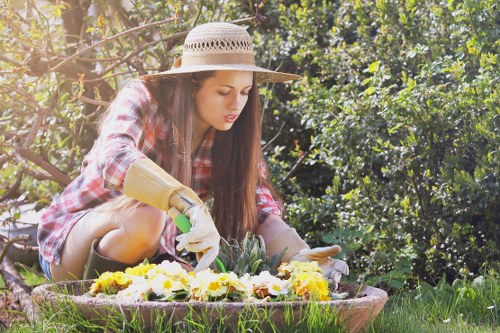
Proper soil preparation is the foundation of any successful garden. In Auburn, enhancing the soil with organic matter like compost or well-rotted manure can improve its structure and fertility.
Testing your soil's pH level is also recommended. Most garden plants prefer a slightly acidic to neutral pH, typically between 6.0 and 7.0. Adjusting the pH can be done by adding lime to raise it or sulfur to lower it, depending on your soil test results.
Regular maintenance, including mulching, watering, and weeding, is essential to keep your garden healthy. Mulch helps retain moisture, suppresses weeds, and adds organic matter to the soil as it breaks down.
Watering Practices for Auburn Gardens
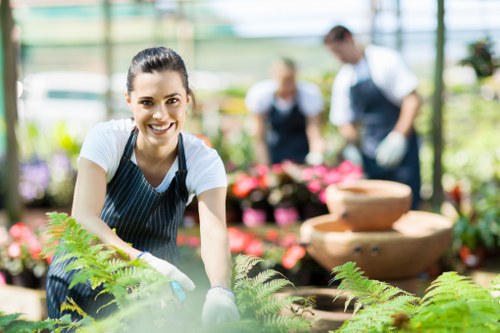
Efficient watering is vital for maintaining a thriving garden in Auburn. It's important to water your plants deeply but infrequently to encourage strong root growth.
Early morning is the best time to water, as it allows the moisture to penetrate the soil before the heat of the day. This reduces evaporation and the risk of fungal diseases.
Consider installing a drip irrigation system to deliver water directly to the base of each plant. This method conserves water and ensures that plants receive the necessary hydration without waste.
Pest and Disease Management
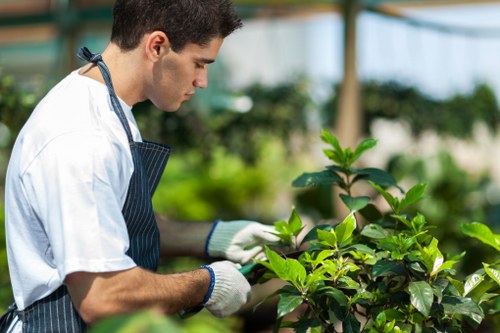
Gardening in Auburn means dealing with common pests and diseases that can affect your plants. Integrated pest management (IPM) is an effective strategy that focuses on prevention and minimal use of chemicals.
Regularly inspect your plants for signs of pests such as aphids, spider mites, and whiteflies. Removing affected leaves and using natural predators like ladybugs can help control pest populations.
Preventing diseases involves proper spacing of plants to promote air circulation, avoiding overhead watering, and selecting disease-resistant plant varieties. Prompt removal of diseased stems and leaves can also prevent the spread of infections.
Seasonal Gardening Tips for Auburn
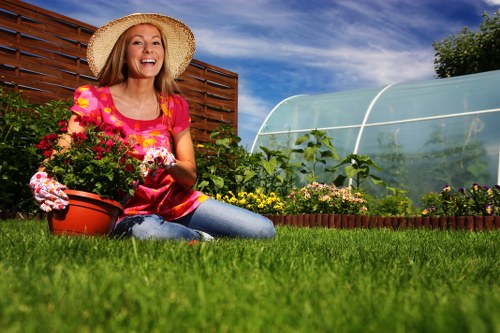
Adapting your gardening practices to the changing seasons ensures year-round garden health. In Auburn, each season brings its own set of tasks and opportunities.
Spring: Begin by cleaning up garden beds, planting early vegetables, and establishing perennial plants. This is also the time to apply a fresh layer of mulch.
Summer: Focus on maintaining moisture levels, deadheading spent flowers, and controlling pests. Proper shading and ventilation can help protect plants from the intense heat.
Autumn: Harvest remaining crops, plant fall-blooming flowers, and prepare beds for winter by adding compost and mulch.
Winter: While growth slows, it's a good time to plan for the upcoming year, repair garden tools, and protect sensitive plants from frost.
Gardening Tools and Equipment
Having the right tools is essential for efficient gardening. Invest in high-quality tools such as:
- Hand trowels and cultivators for planting and soil preparation
- Pruners and shears for trimming and shaping plants
- Watering cans or hoses with adjustable nozzles
- Wheelbarrows or garden carts for transporting materials
- Gardening gloves to protect your hands
Additionally, consider using ergonomic tools to reduce strain and increase comfort during long gardening sessions.
Local Gardening Resources in Auburn
Auburn offers a wealth of resources for gardeners, including local nurseries, gardening clubs, and extension services. These resources provide valuable information on plant selection, garden design, and pest management.
The Auburn University Extension Service is a particularly useful resource, offering workshops, publications, and expert advice tailored to the Auburn region.
Joining a local gardening club can also connect you with fellow enthusiasts, creating opportunities for knowledge sharing and community projects.
Gardening for Sustainability
Embracing sustainable gardening practices not only benefits your garden but also the environment. Here are some tips for sustainable gardening in Auburn:
- Composting: Recycle kitchen scraps and garden waste to create nutrient-rich compost for your soil.
- Rainwater Harvesting: Collect rainwater to reduce reliance on municipal water sources and provide plants with natural hydration.
- Native Plants: Incorporate native species that require less water and are more resistant to local pests.
- Organic Practices: Use organic fertilizers and pesticides to maintain soil health and minimize chemical runoff.
- Energy-Efficient Lighting: If using grow lights, choose energy-efficient options to reduce electricity usage.
By implementing these sustainable practices, you can create a garden that is both beautiful and environmentally friendly.
Designing Your Auburn Garden
Garden design plays a pivotal role in the overall aesthetics and functionality of your outdoor space. When designing your Auburn garden, consider the following elements:
- Layout: Plan the arrangement of plants, pathways, and structures to create a balanced and harmonious space.
- Color Scheme: Choose a color palette that complements your home and personal taste, ensuring a cohesive look throughout the garden.
- Texture and Shape: Incorporate a variety of plant textures and shapes to add depth and interest.
- Focal Points: Create focal points such as a garden bench, water feature, or sculpture to draw attention and define areas.
- Lighting: Use garden lighting to highlight key features and extend the usability of your garden into the evening hours.
Careful planning and thoughtful design will result in a garden that is both functional and visually appealing.
Gardening Services in Auburn
If you prefer professional assistance, Auburn offers a range of gardening services to meet your needs. From landscape design and installation to regular maintenance and specialized care, these services can help you achieve the garden of your dreams.
Professional gardeners can provide expertise in soil management, plant selection, and pest control, ensuring that your garden remains healthy and vibrant. Additionally, seasonal services such as mulching, pruning, and winterization can keep your garden in top condition year-round.
Consider contacting local gardening companies to discuss your specific requirements and obtain quotes tailored to your project.
Community Gardening in Auburn
Auburn boasts a strong community gardening scene, providing opportunities for residents to collaborate and share resources. Community gardens offer a communal space where individuals can grow their own plants while fostering a sense of community.
Participating in a community garden can provide access to shared tools, knowledge, and support from fellow gardeners. It also promotes sustainable practices and enhances the overall green space within the Auburn area.
Check with local organizations or the Auburn University Extension Service to find community gardening opportunities near you.
Gardening Events and Workshops
Staying informed and continuously improving your gardening skills is easy in Auburn, thanks to various events and workshops held throughout the year. These events cover topics such as organic gardening, landscape design, and specific plant care techniques.
Attending workshops can provide hands-on experience and direct access to gardening experts. Additionally, gardening events often feature plant sales, demonstrations, and networking opportunities with other gardening enthusiasts.
Keep an eye on local bulletin boards, community centers, and online platforms for upcoming gardening events in Auburn.
Gardening Challenges in Auburn
While Auburn's climate is generally favorable for gardening, there are specific challenges that gardeners may face. Addressing these challenges proactively can help maintain a healthy garden.
- Heat and Humidity: The hot summers can stress plants, making regular watering and shade provision essential.
- Pest Pressure: High humidity can attract pests and promote fungal diseases, requiring vigilant monitoring and management.
- Soil Erosion: Heavy rains can lead to soil erosion, especially on sloped areas. Implementing ground covers and retaining walls can mitigate this issue.
- Frost: While winters are mild, occasional frosts can damage sensitive plants. Using frost cloths and selecting frost-tolerant species can provide protection.
By understanding and addressing these challenges, you can enhance the resilience and productivity of your Auburn garden.
Innovative Gardening Techniques
Incorporating innovative gardening techniques can improve efficiency and sustainability in your Auburn garden. Here are some methods to consider:
- Raised Beds: Elevate your garden beds to improve drainage, reduce soil compaction, and make gardening more accessible.
- Vertical Gardening: Utilize vertical space with trellises, wall planters, and hanging baskets to maximize planting areas.
- Hydroponics: Grow plants without soil using nutrient-rich water solutions, ideal for limited spaces.
- Companion Planting: Plant compatible species together to enhance growth, deter pests, and improve soil health.
- Rain Gardens: Design gardens that capture and absorb rainwater, reducing runoff and supporting local ecosystems.
Embracing these techniques can lead to a more productive and eco-friendly garden.
Gardening for Wildlife
Creating a garden that supports local wildlife enhances biodiversity and fosters a balanced ecosystem. In Auburn, you can attract various beneficial creatures by incorporating specific plants and features.
Include nectar-rich flowers like bee balm, coneflowers, and sunflowers to attract pollinators such as bees and butterflies. Providing water sources, such as birdbaths or small ponds, can support birds and amphibians.
Planting native shrubs and trees offers habitat and food for birds and small mammals. Additionally, installing birdhouses and insect hotels can further promote wildlife-friendly environments.
Edible Gardens in Auburn
Growing your own food adds both functionality and beauty to your Auburn garden. Edible gardens can include vegetables, fruits, herbs, and even edible flowers.
Popular vegetables for Auburn gardens include tomatoes, peppers, cucumbers, and leafy greens. Fruit trees such as apples, peaches, and blueberries thrive in the local climate, providing delicious and nutritious yields.
Herbs like basil, rosemary, and mint are easy to grow and enhance culinary dishes. Incorporating edible flowers like nasturtiums and pansies can add color and flavor to your garden and meals.
Indoor Gardening Options
For those with limited outdoor space or a preference for indoor greenery, indoor gardening offers a viable alternative. Auburn's climate variations can make indoor gardening particularly appealing during extreme weather conditions.
Select plants that thrive indoors, such as succulents, snake plants, and philodendrons. Ensure they receive adequate light, either through natural sunlight or artificial grow lights, and maintain appropriate humidity levels.
Indoor gardening not only beautifies your living space but also improves air quality and provides a sense of tranquility. Consider incorporating indoor herb gardens or small container setups to maximize your indoor gardening potential.
Gardening Inspiration and Ideas
Seeking inspiration can spark creativity and help you develop a unique garden design. Auburn's diverse plant life and scenic landscapes offer plenty of ideas for your gardening endeavors.
Explore local botanical gardens, such as the Auburn Botanical Gardens, to observe plant varieties and design elements. Online platforms like gardening blogs, Pinterest, and Instagram also provide a wealth of ideas and trends.
Consider seasonal themes, such as a spring bloom garden or a fall color display, to keep your garden dynamic and engaging throughout the year.
Final Thoughts on Gardening in Auburn
Gardening in Auburn is a rewarding pursuit that combines creativity, nature, and community. By understanding the local climate, selecting appropriate plants, and employing effective gardening techniques, you can cultivate a beautiful and sustainable garden.
Whether you choose to garden independently or seek professional services, Auburn offers ample resources and support to help you achieve your gardening goals. Embrace the journey of gardening, and enjoy the myriad benefits it brings to your life and environment.
Contact us today to start your gardening journey in Auburn or book your service now to transform your outdoor space into a thriving garden paradise.
Exploring Nearby Areas for Gardening Enthusiasts
Auburn's surrounding areas offer diverse opportunities and unique features for gardening enthusiasts. Here are some of the closest areas to explore:
- Opelika: Just a short drive from Auburn, Opelika boasts numerous nurseries and garden centers, perfect for sourcing plants and materials.
- Wetumpka: Known for its scenic landscapes, Wetumpka offers ample outdoor spaces ideal for community gardens and personal green projects.
- Sylacauga: Offering a blend of urban and rural gardening spaces, Sylacauga is great for those looking to expand their gardening horizons.
- Loop: A charming suburb with well-maintained residential gardens, Loop provides inspiration for garden design and maintenance.
- Killeen: Known for its gardening events and workshops, Killeen is a hub for learning and community engagement in gardening.
- Millbrook: With its lush parks and green spaces, Millbrook is ideal for gardening enthusiasts seeking tranquil environments.
- Notasulga: This area offers unique soil compositions, perfect for experimenting with different plant species.
- Bainbridge: Bainbridge's community-driven gardening initiatives make it a vibrant place for collaborative gardening projects.
- Heiberger: A small community with a strong focus on sustainable gardening practices and organic farming.
- Heidelberg: Heidelberg's local gardens and green spaces provide ample opportunities for recreation and gardening inspiration.
- Paxton: Known for its family-friendly gardening spaces, Paxton is great for gardeners of all ages and skill levels.
- Provence: With its picturesque settings, Provence is perfect for ornamental gardening and landscape photography.
- Allgood: Allgood's diverse plant life and gardening communities offer a rich environment for both novice and experienced gardeners.
Exploring these nearby areas can enhance your gardening experience and provide new ideas and resources to incorporate into your Auburn garden.
